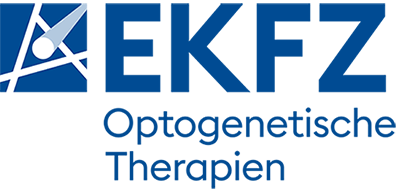Movement Deficits

Optical neuropathy
Worldwide, approximately 63 million people are affected by vision loss due to optic nerve atrophy and neuropathy, with a similar number suffering from loss of limb functionality. Currently, there are only inadequate treatment options for these disabling conditions. The team at the EKFZ Center for Optogenetic Therapies focuses on developing closed-loop optogenetic brain-computer interfaces (oBCIs) aimed at restoring vision and enabling skilled movements in hand prostheses. The optogenetic manipulation of brain circuits, widely used in basic neuroscience, is still in the early stages of translation into clinical application. Challenges with current commercial BCIs include broad current spread and tissue scarring, which reduce effectiveness shortly after implantation. However, optogenetic stimulation offers a spatially confined and tissue-penetrating solution.
The EKFZ Center for Optogenetic Therapies is advancing the development of high-density, closed-loop oBCIs. For vision restoration, this involves targeting specific brain areas that remain functional despite optic nerve damage; this is initially being tested on marmoset models. To restore motor and sensory functions of limbs, the approach involves integrating feedback systems into prostheses to simulate sensory inputs controlled by brain activity. These initiatives require close collaboration between various research platforms to refine the technology and ensure it is safe and effective for future clinical trials. The long-term goal is to conduct extensive preclinical trials on non-human primates to pave the way for clinical testing.
Contact:
Prof. Dr. Marcus Jeschke
Prof. Dr. Hansjörg Scherberger

